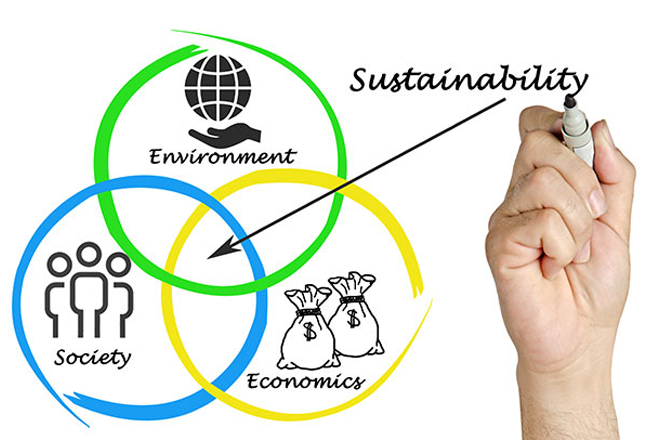We’ve already written about how important it is to protect the future value of your laptops, tablets and mobile phones by having a maintenance and support plan in place to keep them in top condition during their first life. In this article we want to explore how device sustainability can influence purchasing decisions as part of the wider procurement process.
- Sourcing Goods in a Sustainable Way
According to HMRC, sustainable procurement is when organisations meet their needs for goods and services in a way that achieves value for money on a whole life basis in terms of generating benefits to the organisation whilst minimising damage to the environment. With the ever-growing tsunami of E-waste generated around the world, the key focus here should be on ‘whole life’. It’s easy to only consider this in terms of what happens to a device once you’ve finished using it when perhaps we all need to consider sustainability in the manufacturing process as well.
- The Leading Device Suppliers
Our sister company Tek Express is a mobile workforce support specialist working with a wide variety of different laptops and tablets. For this article we researched 6 different brands that our team supports.
Using Google and the search term ‘manufacturer name + sustainability’ this is what we’ve discovered about the sustainability focus of these leading brands. The fact that each of them has dedicated public facing web pages promoting their position confirms this is viewed as an important aspect of supplier selection.
- HP - Hewlett-Packard
Market leaders HP claim that they aim to be the most sustainable and just technology company and that they are engineering the industry's most sustainable portfolio of products and solutions. They have used an impressive 1,700,000 pounds of ocean-bound plastic in their products since 2016 which is more than 60 million bottles. HP also runs a network of Planet Partners that collect used products for resale and recycling in 76 countries and territories worldwide. They aim to recycle 1.2 million tonnes of hardware and supplies by 2025 and successfully recycled 642,300 tonnes in 2020.
Click here to find out more.
- Panasonic
Panasonic offers an interesting archive of blog articles called the Sustainability Files that launched with an overview of the innovative eco-conscious products they provide to their customers. Panasonic also details their Environment Vision 2050 policy which is a commitment to aiming for a society with clean energy, a more comfortable lifestyle with energy used being less than energy created. Within a sub-section of their Environment information there’s more detailed information available on how they are promoting the development of the circular economy with the evolution of recycling-orientated manufacturing.
Click here to find out more.
- Apple
As you’d expect from such a design led business, Apple’s 2021 Environment Progress Report is very slick with key points highlighted in an easy to follow visual format. In their ‘Apple has a plan’ video, they promise to make every single Apple product carbon neutral by 2030 by manufacturing them from 100% recycled or renewable materials. Research from their Material Recovery Lab in Texas is helping to reclaim more product building blocks with transformative tools and technologies. Their disassembly robots Daisy and Dave take apart devices and components, enabling the recovery of precious rare earth elements like steel and tungsten for use in the next generation of products.
Click here to find out more.
- Lenovo
Their sustainability headline says they are committed to social responsibility and are striving to do things differently so that they can consistently become better. There’s a big focus on lowering their carbon footprint and demonstrating ethical integrity in their supply chain. To find any mention of the circular economy you have to scroll to page 119 of their 167 page sustainability report. This is such a shame as the quality of the information, once you find it, is really very good. One stand out fact is that since 2005, Lenovo has processed 500,000,000 pounds of computer equipment through their Product End of Life Management (PELM) programs.
Click here to find out more.
- Dell
On the topic of producer responsibility, which is a prominent article in their sustainability content, Dell states that as a global producer of computer products and a local citizen of the communities they serve, they are a steward of the planet we share. As such they have a responsibility to recover used electronics and recycle them properly. Out of the 6 tech giants we’ve looked at they are the only one that clearly links to a detailed Producer Responsibility Policy. They also openly share the essential core principles they believe should be implemented in all product recovery legislation. Whilst the design layout of their sustainability information is rather formal and corporate the content is impressive.
Click here to find out more.
- Acer
Despite having a comprehensive and detailed web site promoting their Corporate Social Responsibility, it’s much harder to get any key facts about device sustainability from Acer. There’s a product recycling statement saying they strive to reduce the environmental impact of their products at each stage of its life cycle through designing environmentally friendly and easily recycled products. If you look carefully, there are some interesting facts to discover but the information reads as if it’s been lifted from a corporate annual report rather than being purpose designed to inform consumers. Surprisingly, the graphs they do share seem to suggest that their product recycling has diminished since 2015.
Click here to find out more.
Clearly this is only a brief overview of what the big suppliers are up to, but we hope it inspires you to take a closer look at the sustainability policy of your chosen laptop manufacturer before you place your next order. The team here at TEKrefresh is always happy to help you to evaluate which device supplier best matches your own sustainability goals.
